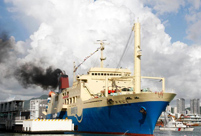 Maritime Silk Road Luxuries of the Han Dynasty
Maritime Silk Road Luxuries of the Han Dynasty
 Ceremony in honor of Confucius held in Sichuan
Ceremony in honor of Confucius held in Sichuan
 Hollywood blockbusters heats up fashion show in NW China
Hollywood blockbusters heats up fashion show in NW China
 Ciao! Chinese beauties!
Ciao! Chinese beauties!
 Naughty polar bear waves to photographer in Wapusk, Canada
Naughty polar bear waves to photographer in Wapusk, Canada
 An eye feast: BFA freshmen registration
An eye feast: BFA freshmen registration
 Top 10 most lavish weddings
Top 10 most lavish weddings
 Most amazing chi-pao beauties
Most amazing chi-pao beauties
 Observe the earth from space
Observe the earth from space
 Chinese lingerie brand arrives in Las Vegas
Chinese lingerie brand arrives in Las Vegas
Scotland will hold its independence referendum on September 18. A poll released Saturday suggested that pro-independence voters had taken the lead for the first time since the referendum campaign started. This dramatic shift in public sentiment has shocked the whole UK.
Scotland only has a population of 5.4 million, around 8 percent of that of the UK, but boasts a territory of about one-third of the nation. UK Prime Minister David Cameron inked an agreement in October 2012 ensuring that the Scottish parliament could hold a referendum on independence, known as the Edinburgh Agreement. Back then only about 30 percent showed support for independence and Cameron thought the referendum would put an end to the protracted controversy between the "Yes" campaign and the "No" group.
Now the UK is standing on a precipice. The Scottish National Party who takes a pro-independence stance is in office and its leader Alex Salmond serves as the First Minister of Scotland. Public will has reversed astonishingly within just one year, demonstrating that a secessionist party, once assuming power, will play a vital role in mobilizing the whole of society to pursue independence.
It is hard to say whether the proponents of independence will realize their dream in the referendum, which, however, obviously helps highlight and spread an independent spirit across Scotland.
Even if the "No" group aimed at keeping the Union intact wins the vote narrowly, it will in no way mean an end to the Scottish independence campaign.
If Scottish independence happens, Cameron will likely become a "sinner" of history for the UK. And if opponents win the vote, the UK government must be capable of tackling various consequences brought about by people's growing desire for independence. He may have to render more autonomy in tax revenue and social welfare to Scotland and defuse grievances from Northern Ireland and Wales.
Consolidated peace in an increasing number of countries makes smaller states feel more secure. Scotland is part of Europe which is one of the world's most stable regions with many affluent countries. Furthermore, they can rely on the European Union. Therefore some Scottish people contend that they will obtain more advantages at little cost by seceding from the UK.
If Scotland gains independence, the UK will descend from a first-class country to a second-rate one, which will once again break the balance within Europe. And its consequence may even wield influence upon international geopolitics.
The UK will become the biggest loser if such a scenario transpires. The elite of London have begun to feel panicked due to these potential risks and no longer wear an expression of pride for delivering the fate of Scotland to more than 5 million people through the vote on independence.
The Scottish independence campaign also tells us that established developed countries like the UK are far from stable as we previously imagined.
 Top 10 world's highest-paid models 2014
Top 10 world's highest-paid models 2014 "Twin flowers" bloom in the air
"Twin flowers" bloom in the air The 4th China-Eurasia Expo opens in Urumqi
The 4th China-Eurasia Expo opens in Urumqi Tall girls shine at model competition
Tall girls shine at model competition Girl who cannot gain weight: She is 1, 2.9 kilograms
Girl who cannot gain weight: She is 1, 2.9 kilograms Bazinga! Watch out the 'facekini' fashion bomb attack
Bazinga! Watch out the 'facekini' fashion bomb attack Experiencing maiden voyage between Sanya and Xisha
Experiencing maiden voyage between Sanya and Xisha Chinese inflatable aircraft meets public for the first time
Chinese inflatable aircraft meets public for the first time People enjoy delicacies in Tianjin undersea tunnel
People enjoy delicacies in Tianjin undersea tunnel COMAC jumbo jet and its global rivals
COMAC jumbo jet and its global rivals Capital Spirits: the capital's first liquor bar
Capital Spirits: the capital's first liquor bar Chengdu International Auto Show
Chengdu International Auto Show 2014 int’l drone exhibition
2014 int’l drone exhibition Trainings taken by Chinese navy divers
Trainings taken by Chinese navy divers Female PLA honor guards
Female PLA honor guardsDay|Week|Month